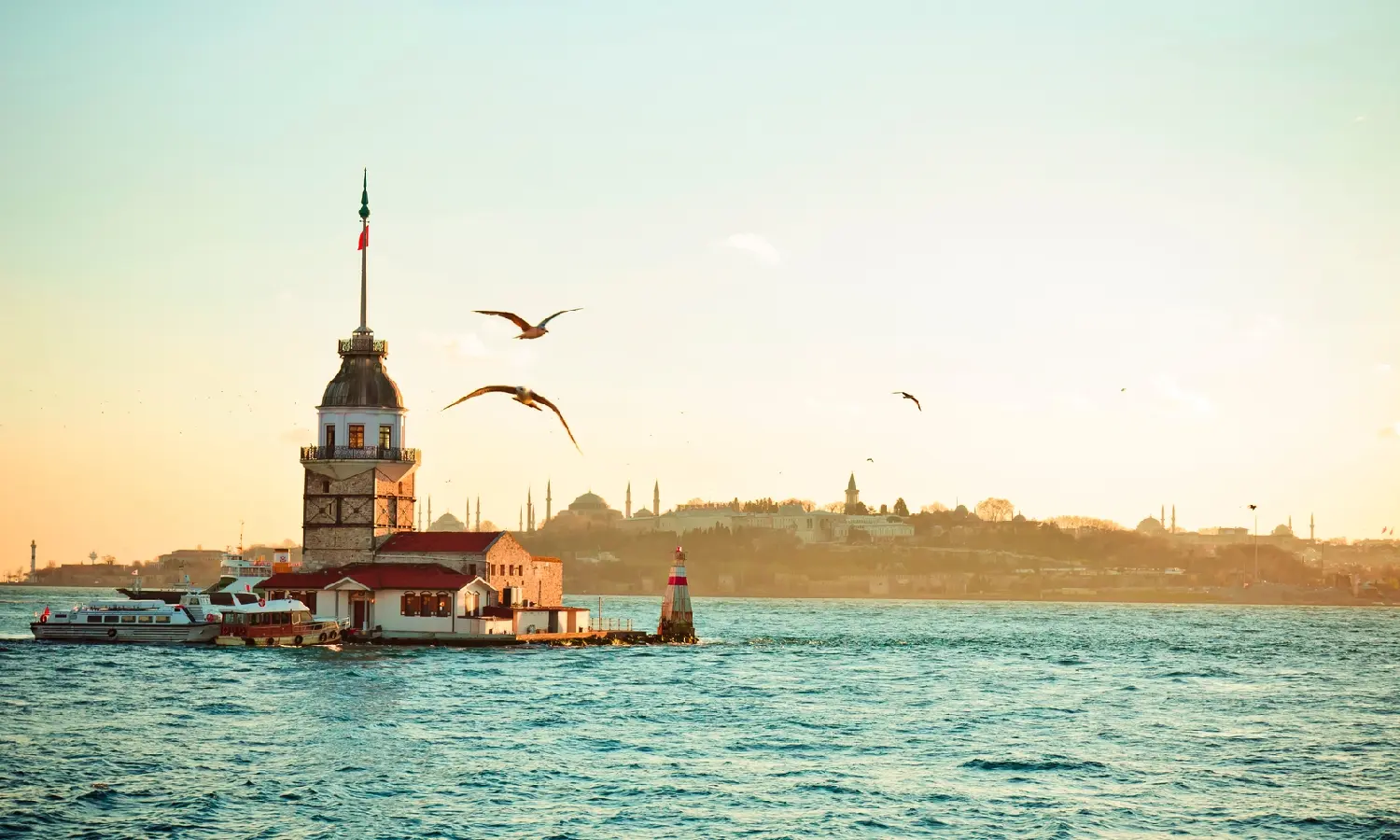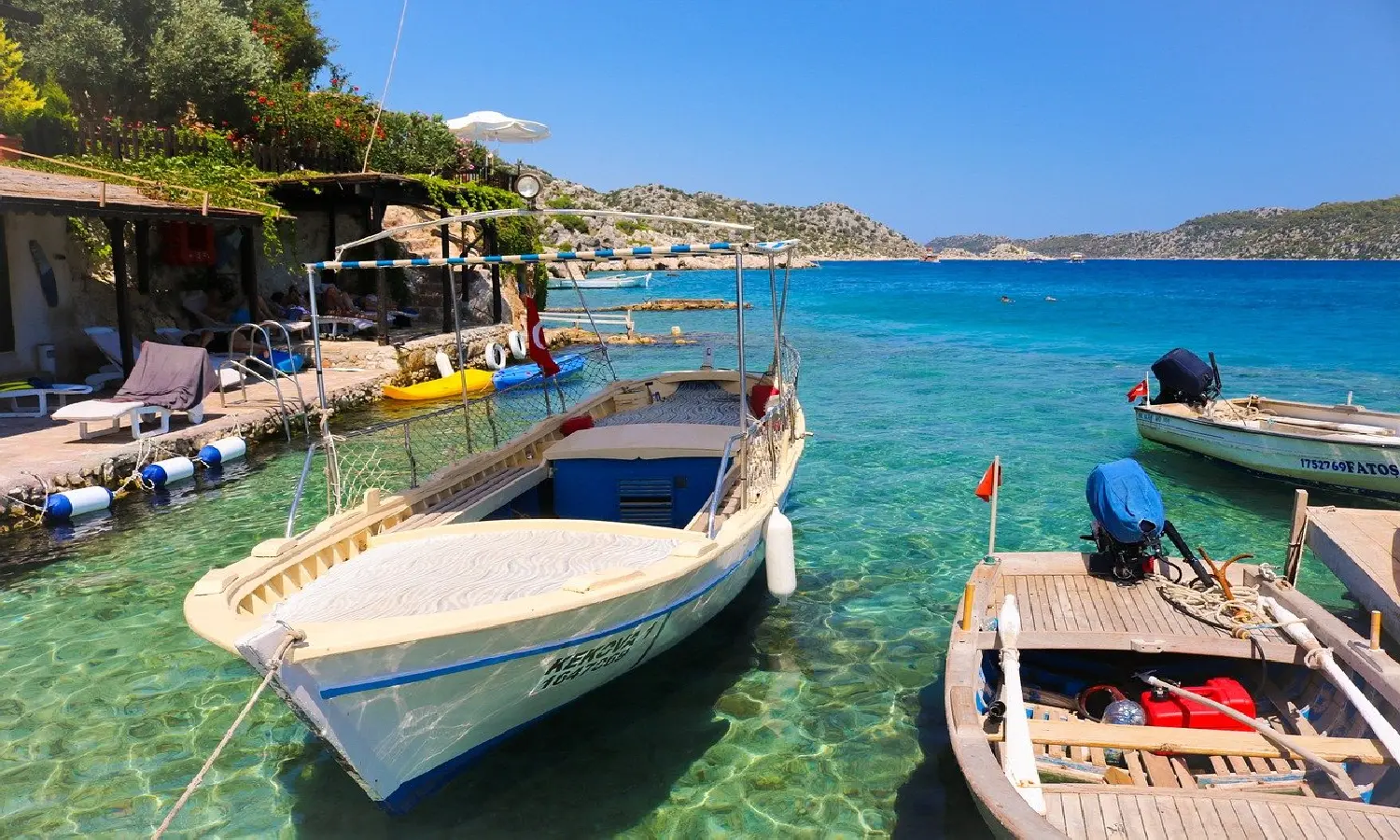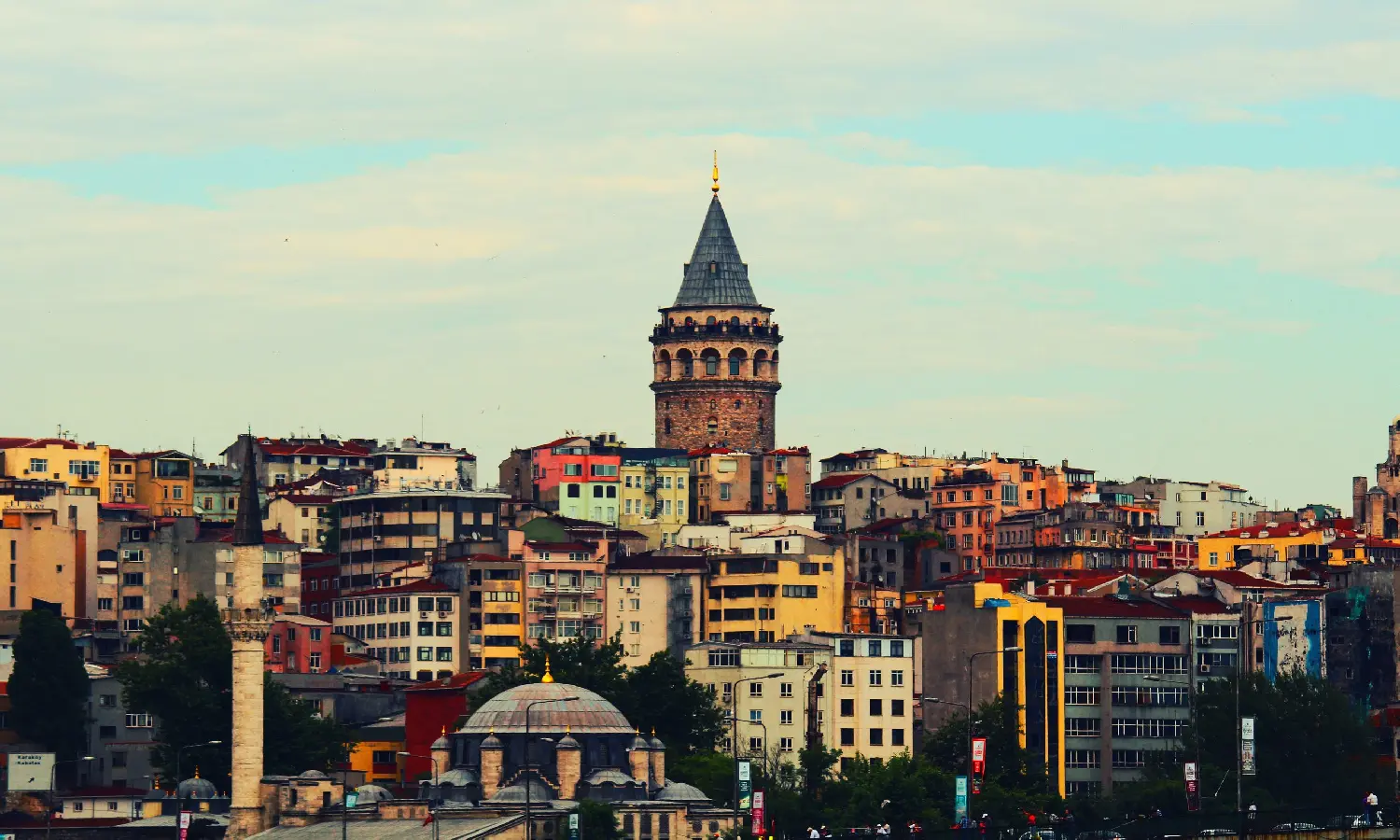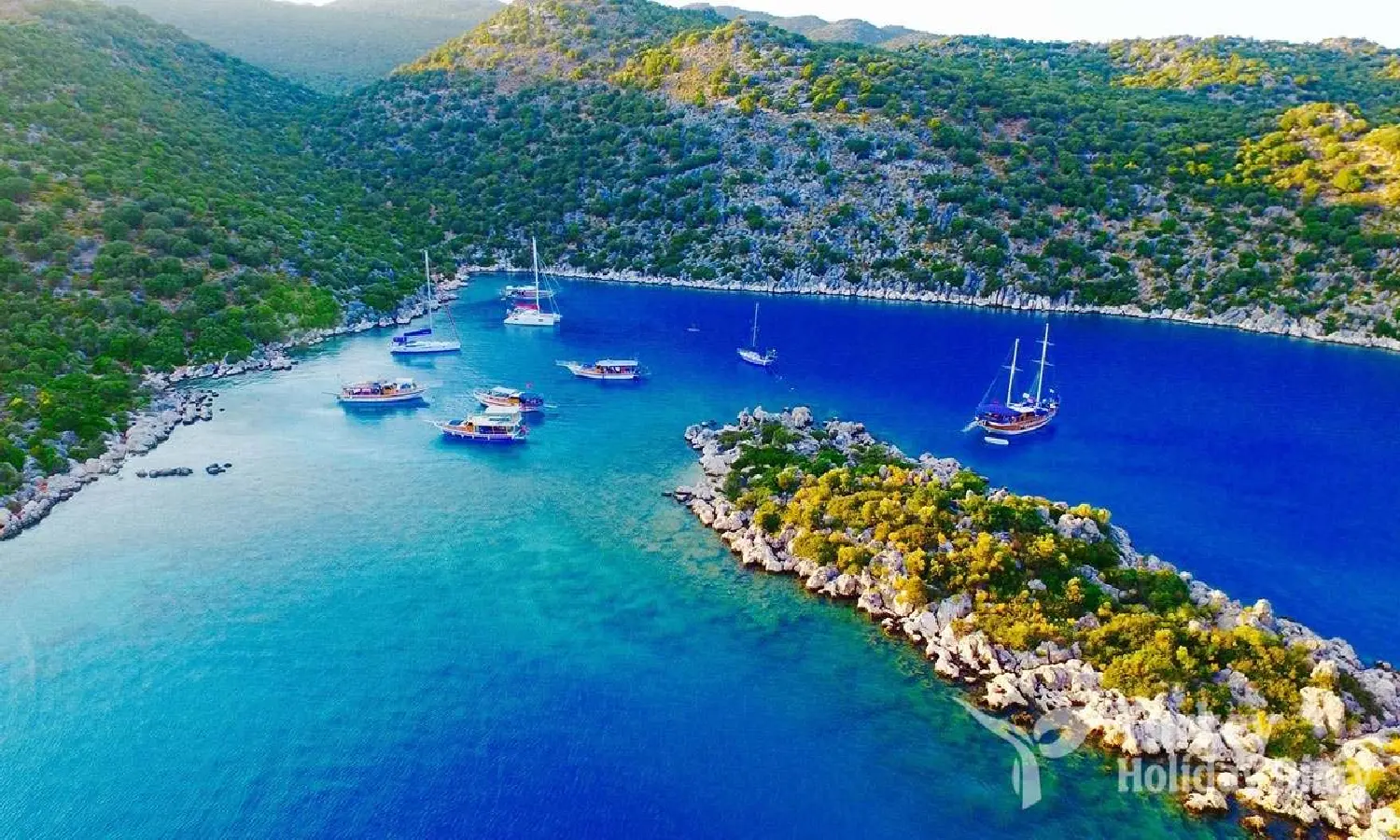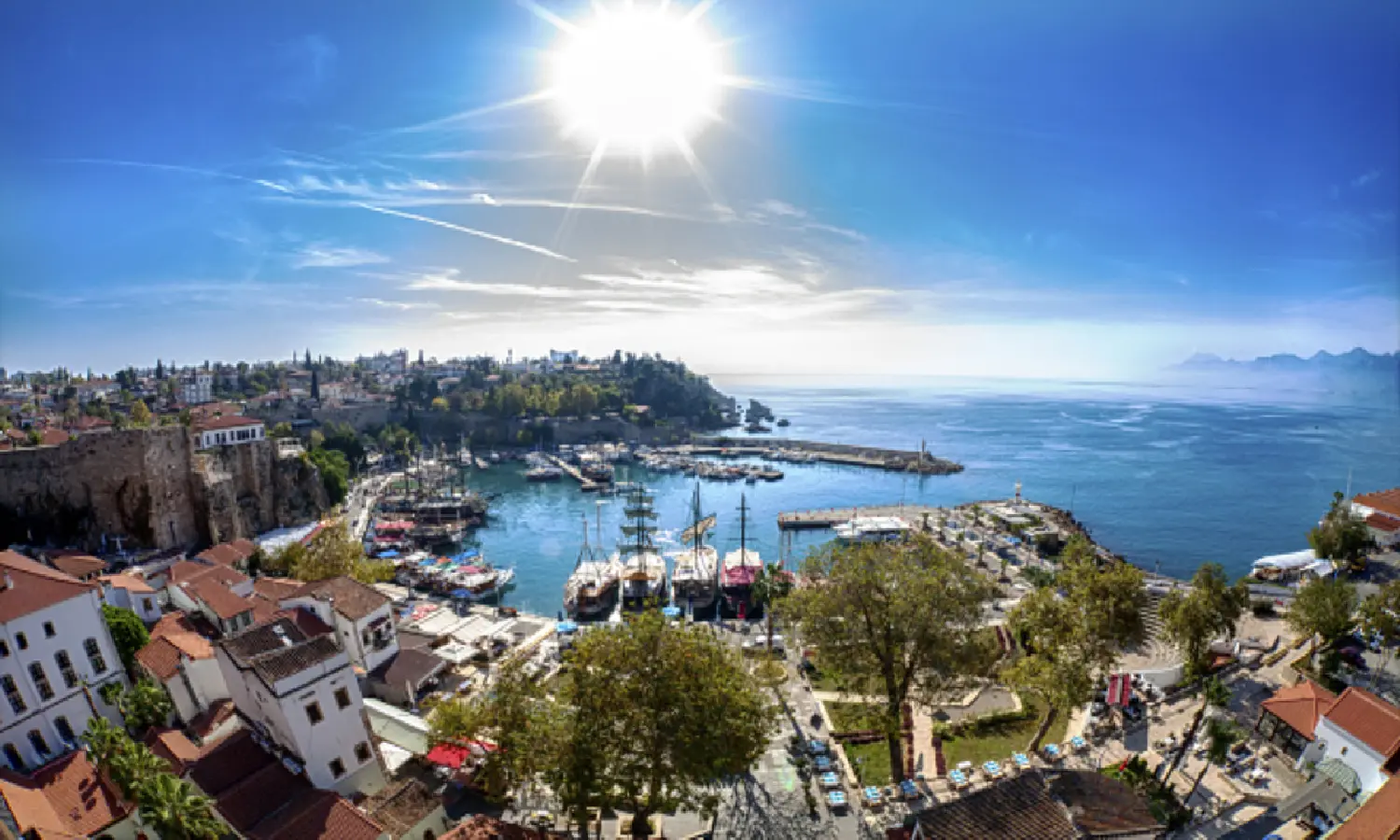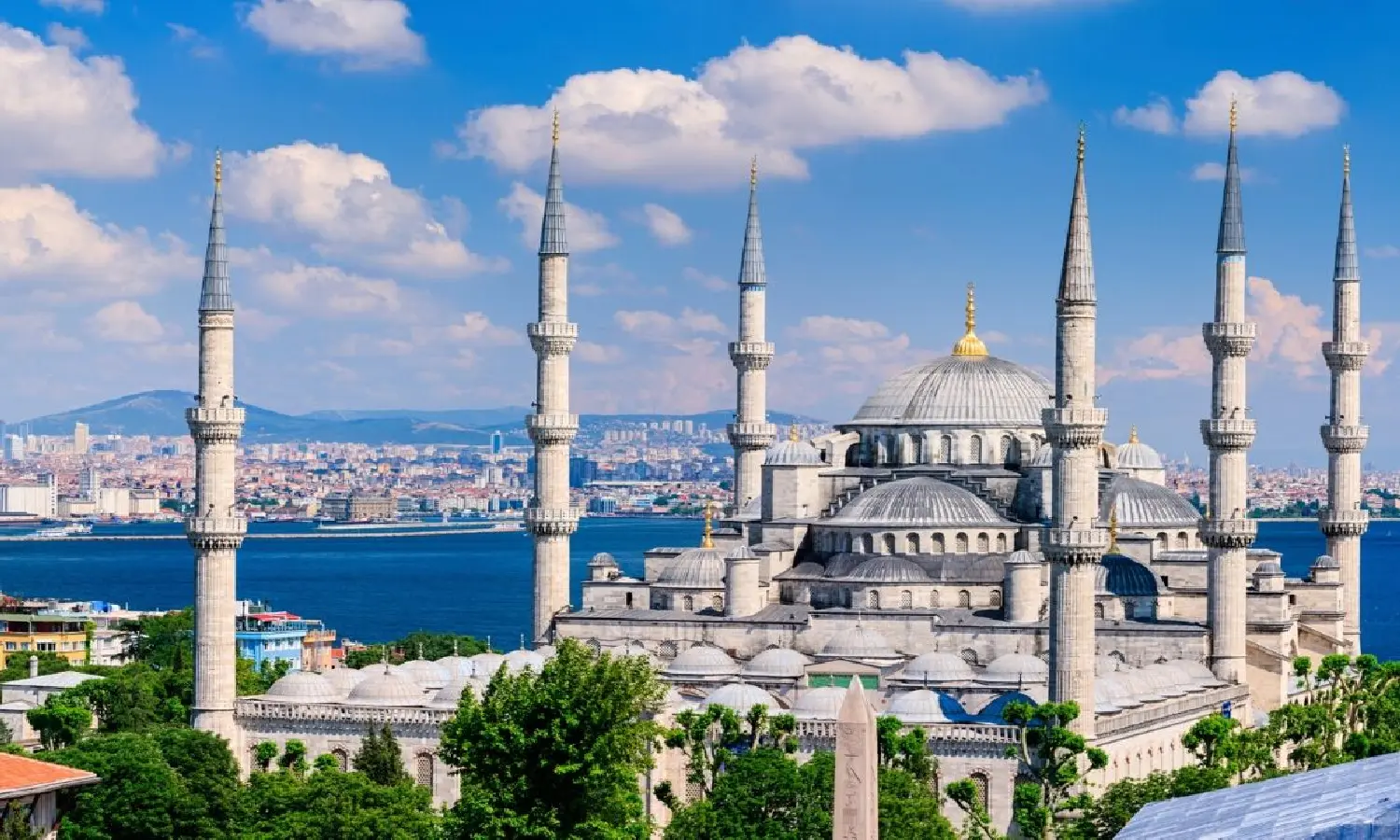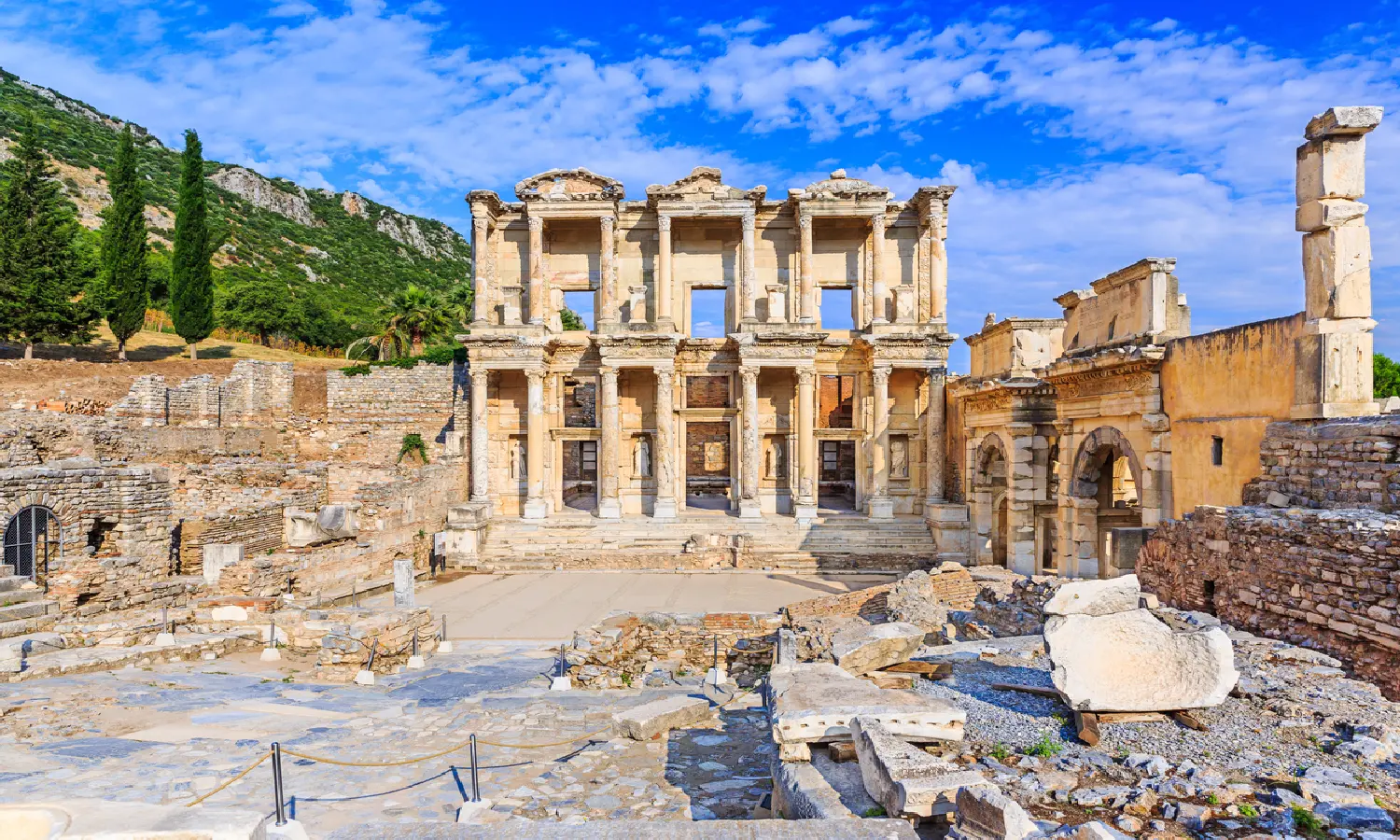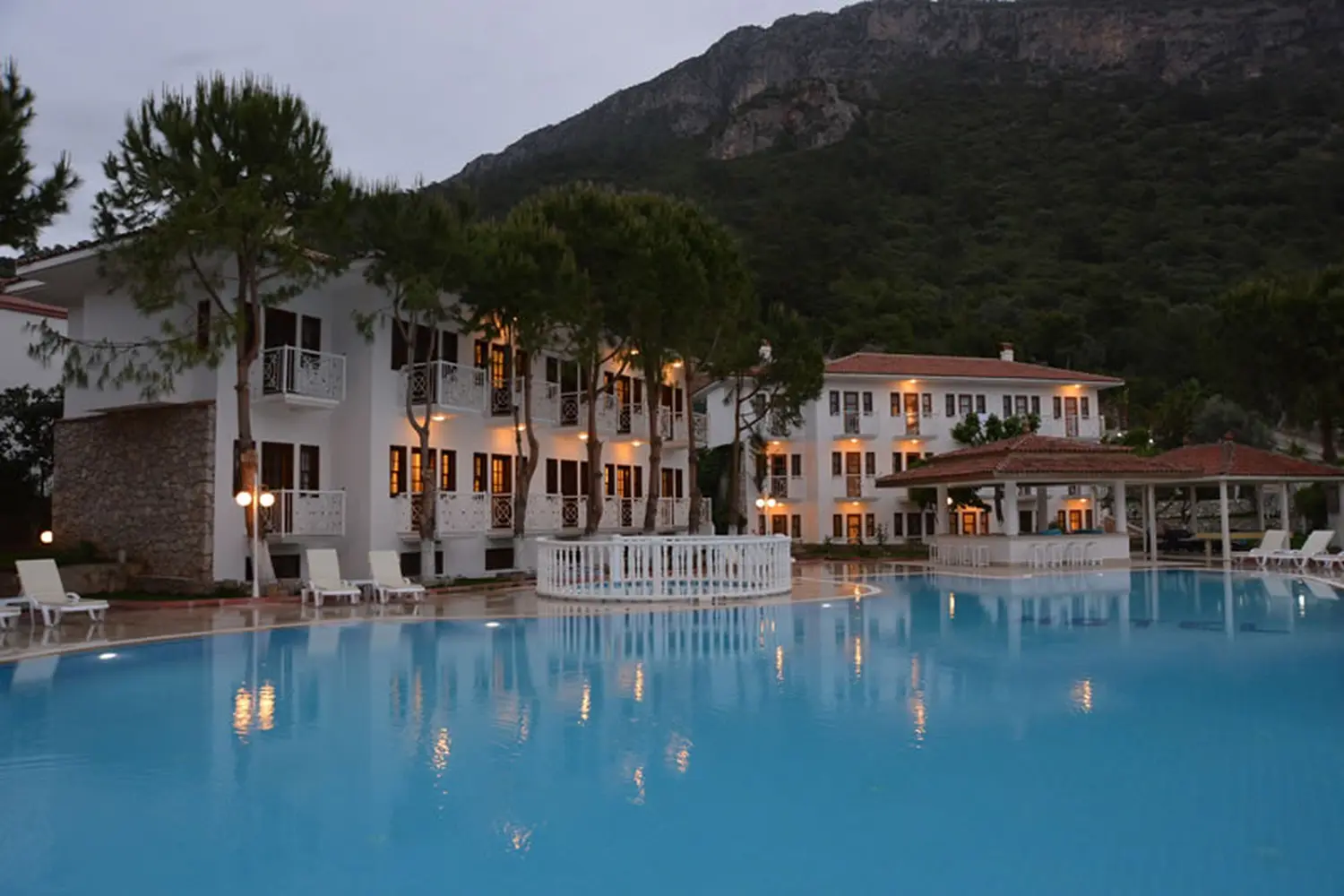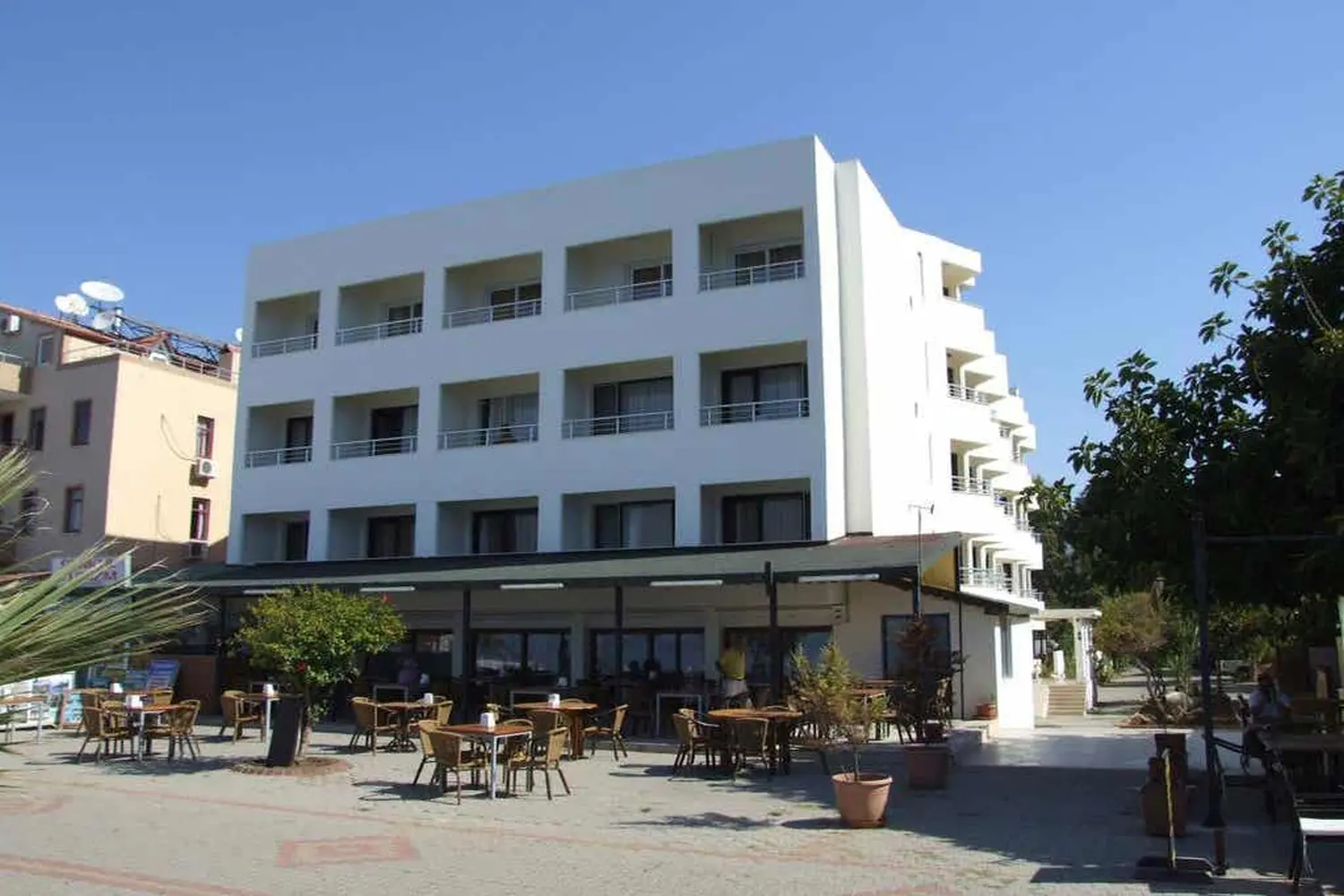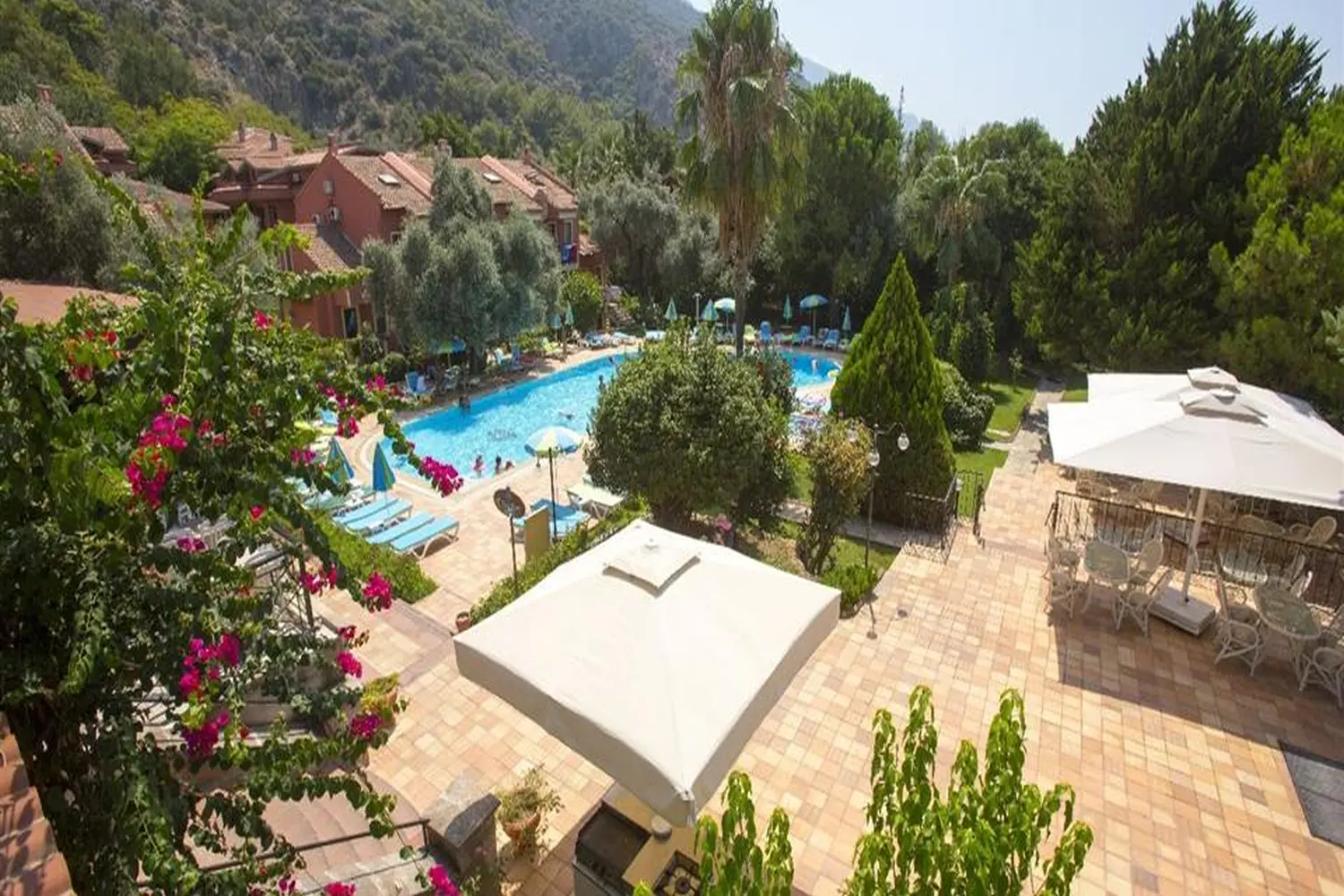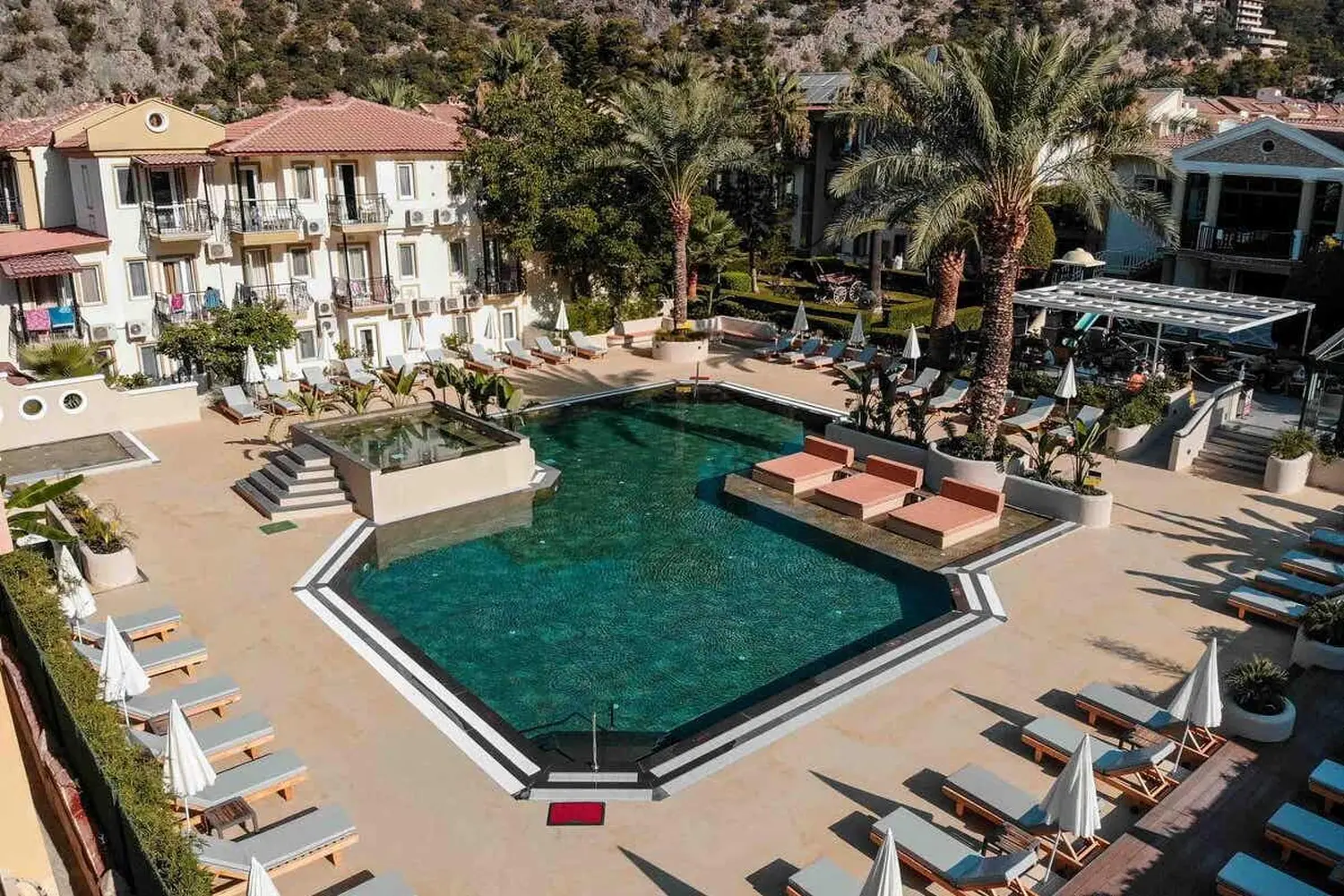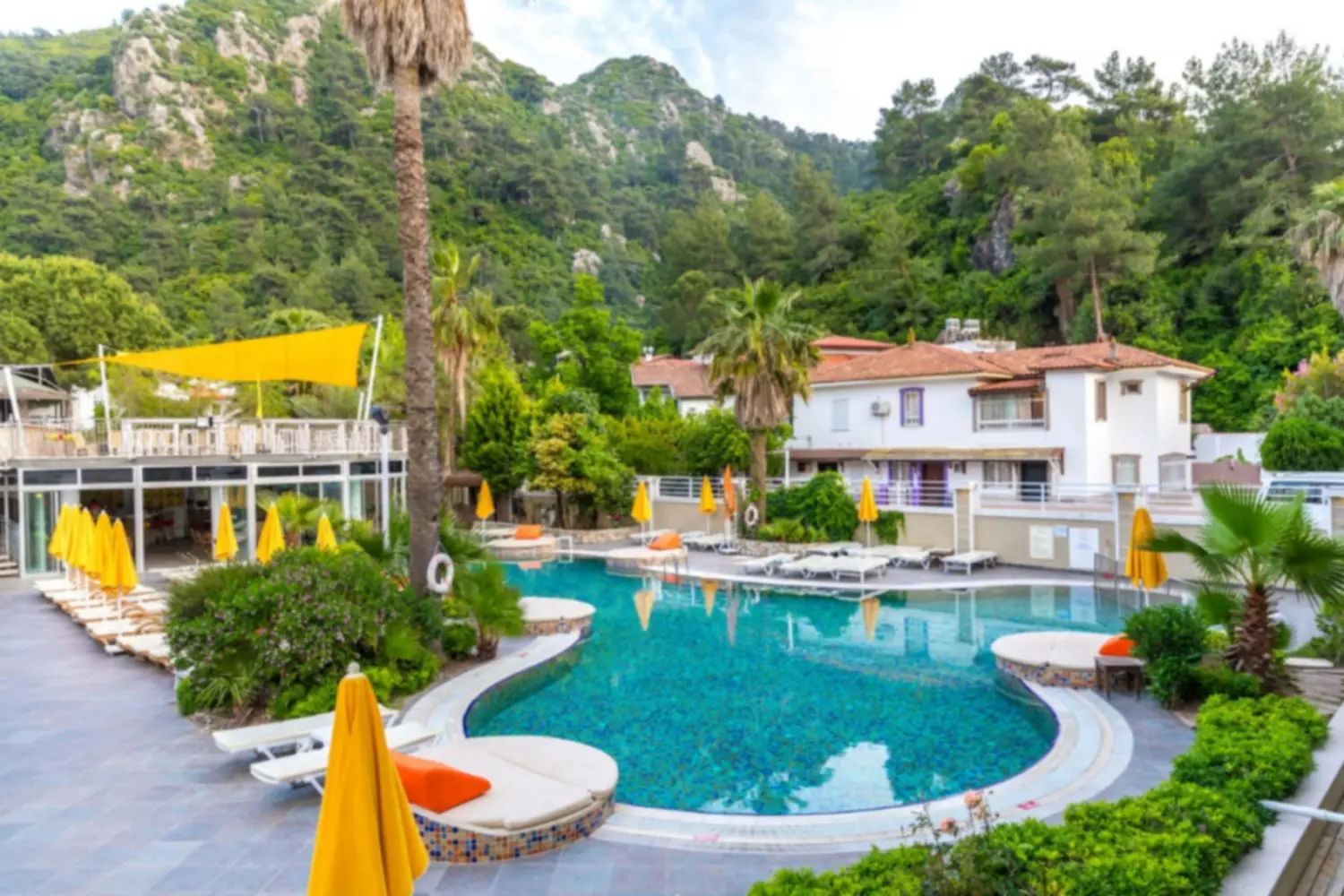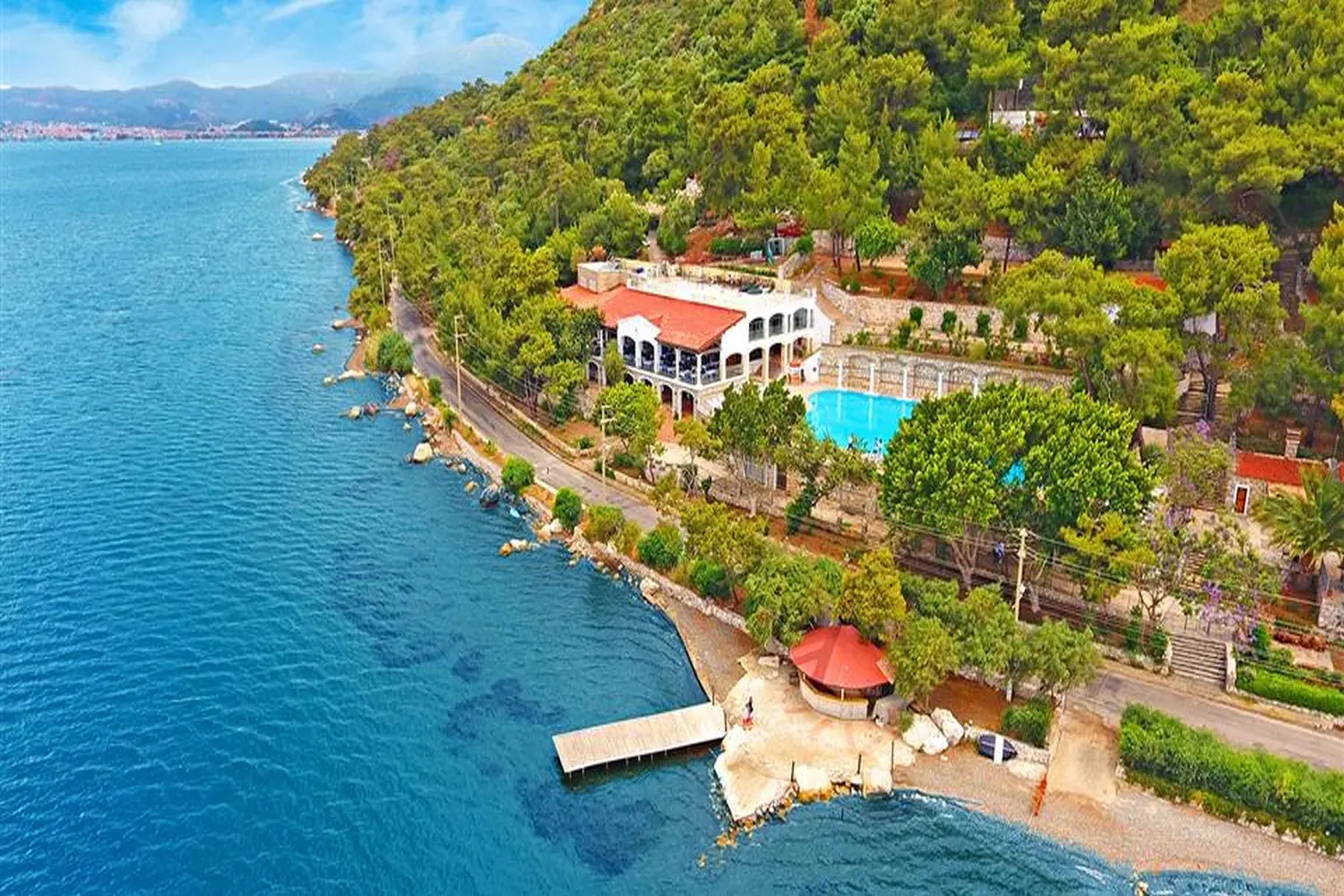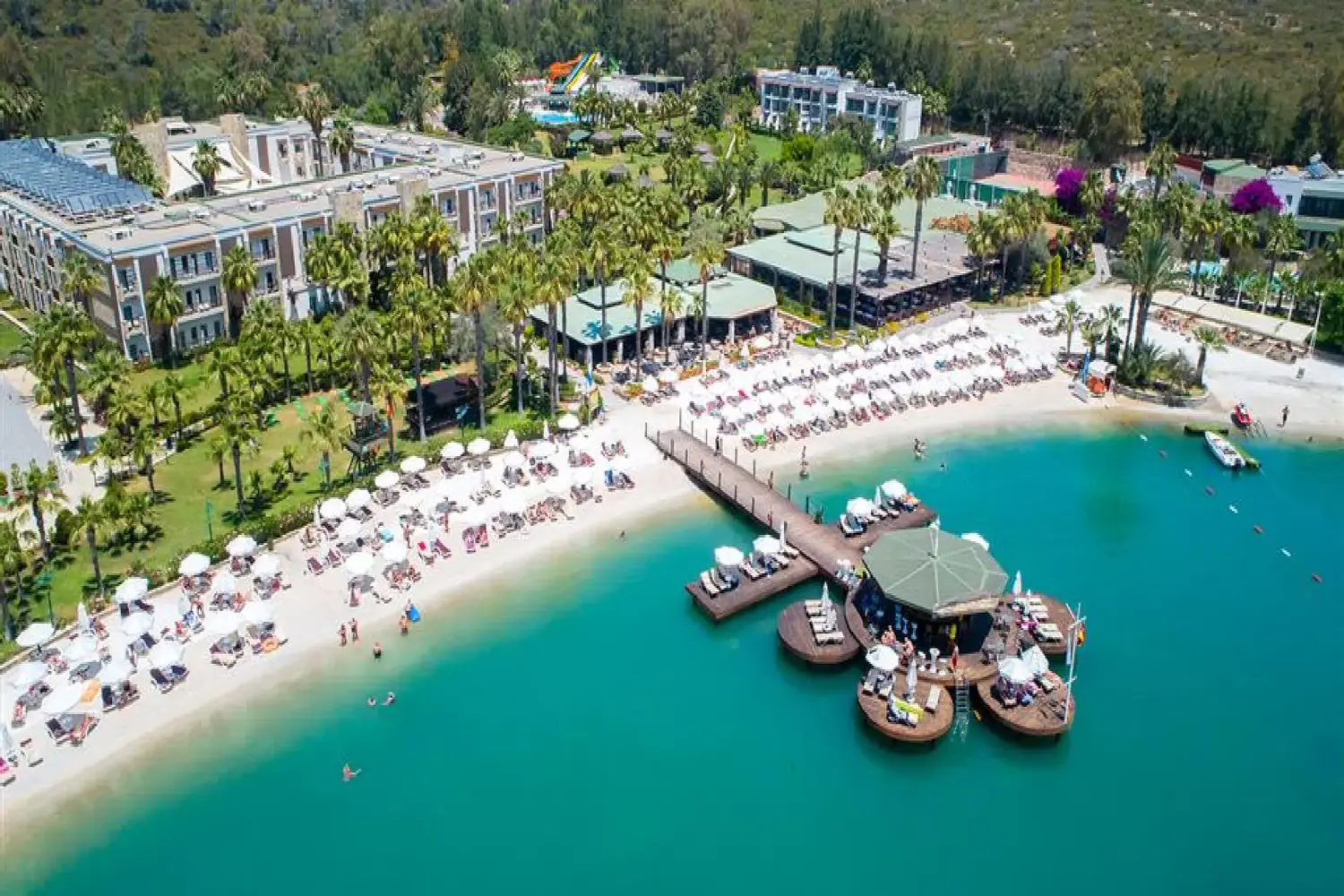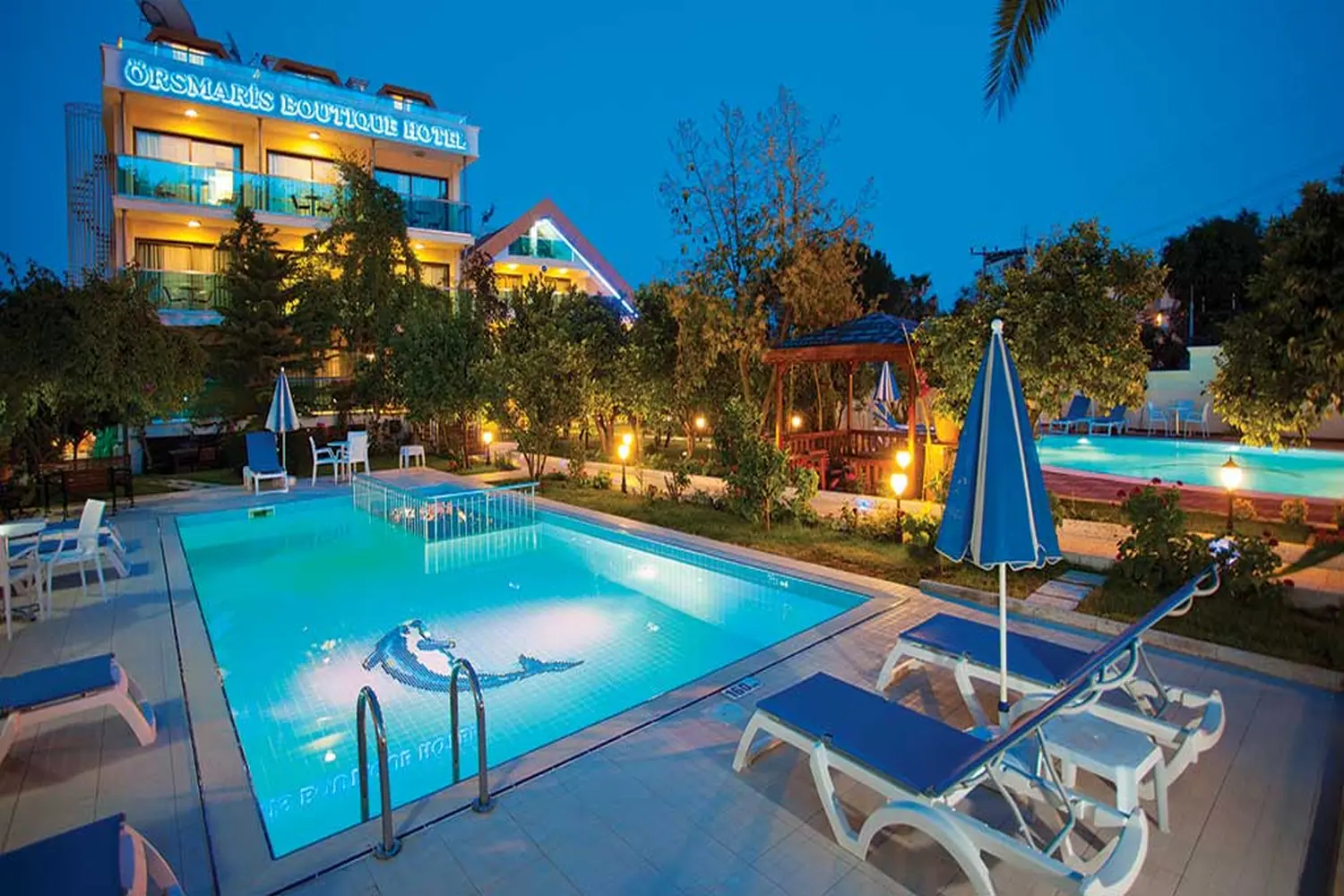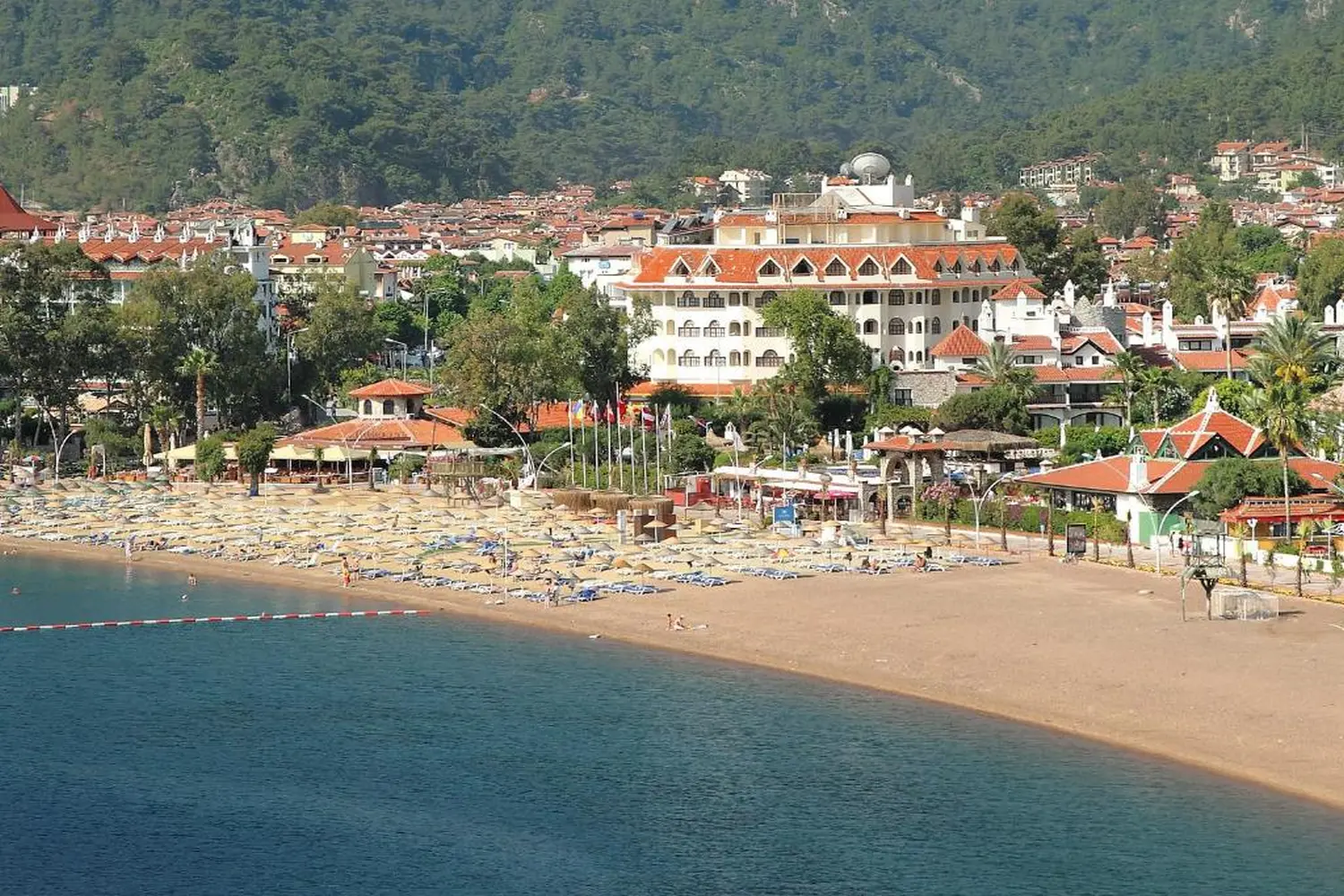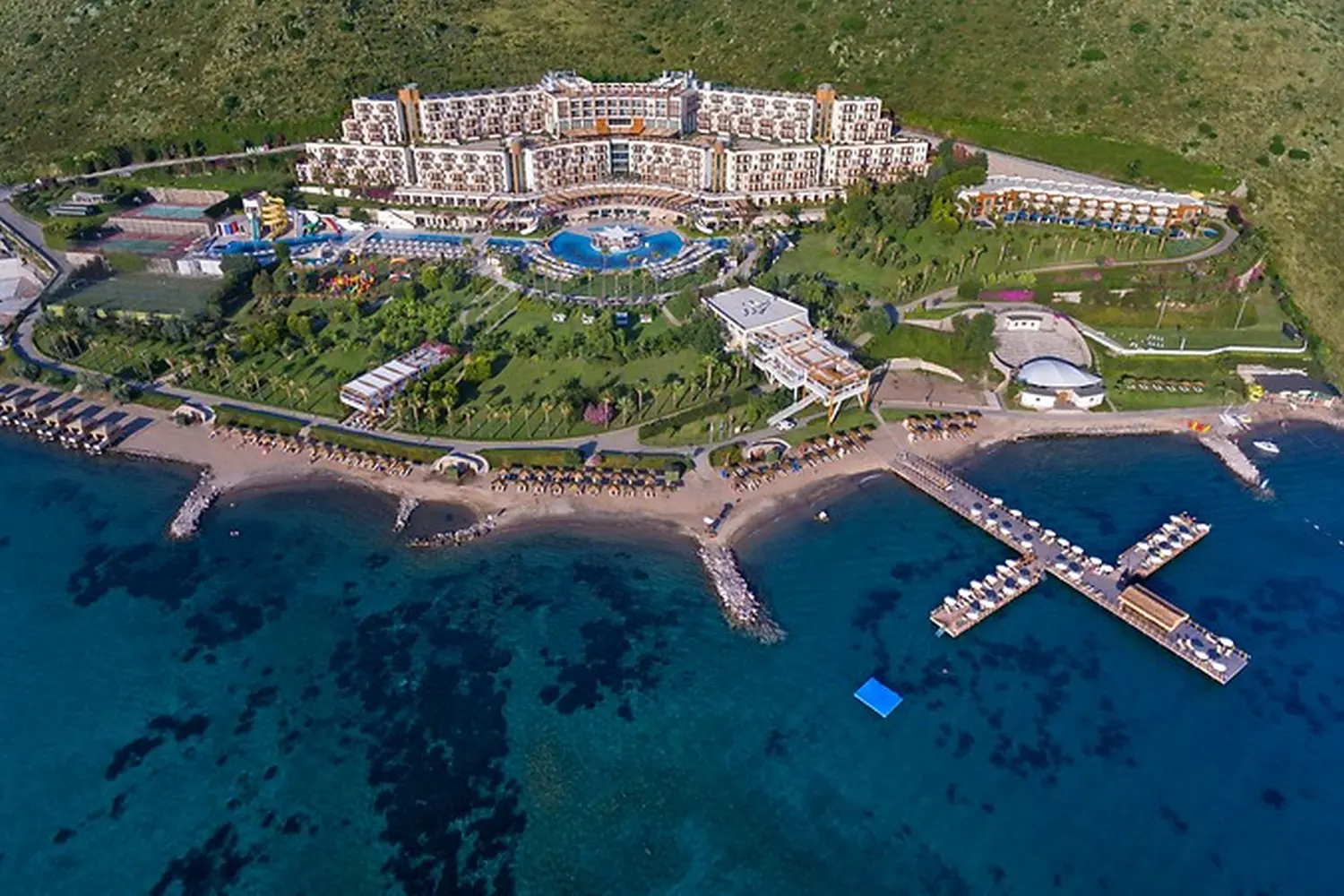![]()
About Turkey
Official name: Republic of Turkey
Location: Turkey is located in Southeastern Europe and Southwestern Asia. European (or Balkan) Turkey is relatively small compared to the Asian part, the Anatolian Plateau, which is a large peninsula.
Area: 780,580 sq. km (301,382 square miles) with a total coastline of 8,430 km (5,238 miles)
Population: 80,810,525 (December 2017 est.)
Capital: Ankara (Population 5,5million)
Landscape: The Asian part of the country – Anatolia is a high hilly plateau with narrow coastal plains. Its northern part is covered by the Pontic and Köroğlu mountain ranges, the southern by Taurus Mountains. Eastern Turkey has a more mountainous landscape. The rivers Euphrates, Tigris and Aras spring there. Anatolia is surrounded by the Black Sea to the north, Aegean sea to the West and the Mediterranean sea to the south. The European part is covered by parts of Eastern Thrace plane and Strandzha mountain. It is separated by Anatolia (Asia Minor) by the Black Sea, Bosphorus, Marmara, Dardanelles and Aegean sea. The biggest town in Turkey is Istanbul, which steps on both continents.
State Government: Turkey is a republican parliamentary democracy. Turkey is the only country with a Muslim majority population (99.8%) that operates under a secular constitution and a democratic government.
President: Recep Erdoğan
Official Language: Turkish
Religions: Islam is the largest religion of Turkey, with 99.8 % of the population being registered as Muslim (mostly Sunni), other 0.2% (mostly Christians and Jews).
Time Difference
Turkey is in the Eastern European Time Zone. Eastern European Standard Time (EET) is 2 hours ahead of Greenwich Mean Time (GMT+2). Like most states in Europe, Summer (Daylight-Saving) Time is observed in Turkey, where the time is shifted forward by 1 hour; 3 hours ahead of Greenwich Mean Time (GMT+3).
After the Summer months, the time in Turkey is shifted back by 1 hour to Eastern European Time (EET) or (GMT+2)
Weather
Aegean and Mediterranean coastal areas enjoy the typical Mediterranean climate. There is hardly a drop of rain during the sunny and hot summer (May to October). The water temperature in the Aegean and Mediterranean Seas is warm and fluctuates between 23° and 28°C from north to south. The region around the Sea of Marmara, including Istanbul, has a transitional climate between Oceanic climate and semi-Mediterranean climate. The water temperature in the Sea of Marmara is also colder than the Aegean and Mediterranean Seas reaching only between 20° and 24°C during the summer (June, July and August). The Black Sea region has an oceanic climate (thanks to the protective shield effect of Caucasus mountains) with the greatest amount of precipitation throughout the year.
Most of the coastal areas have a high level of relative humidity during most of the year which makes hot weather feel hotter and cold weather feel colder than it actually is.
Country dialling code: +90
Measure units: degree Celsius (ºC), meter (m.), litre (l.).
Turkish language
Turkish language belongs to the Altay branch of the Ural-Altaic linguistic family, same as Finnish and Hungarian. It is the westernmost of the Turkic languages spoken across Central Asia and is generally classified as a member of the South-West group, also known as the Oguz group. Until 1928, Turkish was written with a version of the Perso-Arabic script known as the Ottoman Turkish script. In 1928, as part of his efforts to modernise Turkey, Mustafa Kemal Atatürk issued a decree replacing the Arabic script with a version of the Latin alphabet, which has been used ever since.
- Welcome – Hoş geldin
- Hello – Merhaba
- How are you? – Nasılsınız?
- I’m fine, thanks. And you? – İyiyim teşekkür ederim, siz nasılsınız?
- What’s your name? – İsminiz nedir?
- My name is … – İsmim …
- Where are you from? – Nerelisiniz?
- I’m from … – …lıyım
- Pleased to meet you – Memnun oldum
- Günaydın – Good morning
- Tünaydın – Good afternoon
- İyi geceler – Good night
- Goodbye – Hoşçakal/Güle, güle
- İyi şanslar! – Good luck
- Cheers/Good health! – Şerefe!
- Have a nice day – İyi günler!
- I understand – Anlıyorum
- I don’t understand – Anlamıyorum, Anlamadım
- Do you speak English? – İngilizce biliyor musun?
- Do you speakTurkish? – Türkçe biliyor musun?
- Yes, i speak a little Turkish – Çok az Türkçe biliyorum
- Excuse me – İzninizle /Pardon
- How much is this? – Ne kadar?
- Thank you – Teşekkür ederim
Travel
By plane:
ISTANBUL – https://www.istairport.com/en
ANKARA – http://www.esenbogaairport.com/en-EN/Pages/Main.aspx
ANTALYA – http://www.aytport.com/
BODRUM – http://www.bodrumairport.com/
BURSA – http://www.yenisehir.dhmi.gov.tr/havaalanlari/home.aspx?hv=18
IZMIR – http://www.adnanmenderesairport.com/en-EN/Pages/Main.aspx
By bus:
Turkey has a very good long-distance bus network with air-conditioned buses, reserved seats and generally good-quality service, at least with the major operators. Buses are often crowded, but smoking is strictly prohibited.
Three buses with websites (though with poor English support) are:
Metro Bus – www.metroturizm.com.tr/en-default.html
Varan – www.varan.com.tr/
Otobusbileti (Bus ticket) – www.otobusbileti.gen.tr/
Border crossing
As of April 17, 2013, electronic visa (e-Visa) replaces “sticker visa” which was issued at the border crossings. Applicants just need to log on to www.evisa.gov.tr, provide the requested information, (after the application is approved) make an online payment and download their e-Visa.
Please note that e-visa is only valid when the purpose of travel is tourism or commerce. Other purposes, such as work and study, require regular visa given by Embassies or Consulates.
The term “official passports” covers diplomatic, service, special and official passports.
You are kindly advised to have a travel document/passport valid for at least 6 months as from the date of your arrival in Turkey.
Regardless of the visa regime applied towards the citizens of a country, the travel document holders of that country need to obtain visa from Turkish missions beforehand.
If you have a valid visa, you do not need a residence permit up to 90 days. On the other hand, foreigners who shall reside, work or study in Turkey, should register themselves at the nearest local police department upon their arrival in Turkey, regardless of the validity of their visa. When obtaining visas at the border or airport, seek out the separate visa sales desk before getting in the line for passport control.
For UK passport holders, American or Canadian tourists the visa is valid for 3 months, so if you’re planning regular visits to Turkey you won’t necessarily need to pay for each visit.
Free import:
1. tobacco products (for travellers aged 18 and over): 200 cigarettes and 5 cigarillos (not exceeding 3g each) and 10 cigars and 200 grammes of tobacco (with 200 cigarette papers) or 200 grammes chewing tobacco or 200 grammes of water-pipe tobacco or 50 grammes of snuff tobacco;
2. alcoholic beverages (for travellers aged 18 and over): 1 bottle of 1 litre or 2 bottles of 700 ml./750ml. of wine and/or spirits;
3. 5 bottles of perfume (max. 120 ml. each);
4. gifts up to the value of EUR 300.- (EUR 145.- for those aged under 15);
5. 1kg of coffee; 1kg of instant coffee; 500g of tea; 1kg of chocolate; 1kg food made of sugar;
6. medications for personal use.
Free export:
1. two kgs/3 cartons of local tobacco products, 5 kgs. of alcoholic beverages/12 bottles of Raki/local drinks and foodstuffs up to a total value of TRY 100.-, each commodity not to exceed 5 kgs.;
2. gift articles up to a value of TRY 5,000.-. If more is exported, proof is required that foreign currency has been exchanged to the amount in excess of TRY 5,000.-. Prohibited: antiques, grain products, tea, cacao, coffee and spices.
Turkish airports with customs facilities are: Adana (ADA), Ankara (ESB), Antalya (AYT), Bodrum (BJV), Bursa (YEI), Dalaman (DLM), Denizli (DNZ), Elazig (EZS), Erzincan (ERC), Erzurum (EZR), Gaziantep (GZT), Hatay (HTY), Istanbul Ataturk (IST), Istanbul Sabiha Gokcen (SAW), Izmir (ADB), Kayseri (ASR), Konya (KYA), Malatya (MLX), Nevsehir (NAV), Samsun (SZF), Sanliurfa (GNY), Sivas (VAS) and Trabzon (TZX).
There are legal exchange offices in all cities and almost any town. Banks also exchange money, but they are not worth the hassle as they are usually crowded and do not give better rates than exchange offices. You can see the rates office offers on the (usually electronic) boards located somewhere near its gate.
At change bureaus always shop around for the best exchange rate. Make sure the commission rate is no higher than 3%.
Tourism-oriented industries in tourism-oriented towns, as well as shops where big amounts of money change hands, like supermarkets, in most parts of the country, generally accept foreign currency (usually limited to Euro and American Dollars only), but the rates they accept the currency are usually a little lower than those of exchange offices. Ask first if they accept foreign currency.
Phone calls: While not as common as they used to be, possibly because of the widespread use of mobile phones, public pay phones can still be found at the sides of central squares and major streets in towns and cities and around post offices (PTT), especially around their outer walls. With the phase-out of old magnetic cards, public phones now operate with chip Telekom cards which are available in 30, 60 or 120 units and can be obtained at post offices, newspaper and tobacco kiosks. (However, emergency numbers can be called without card or anything from these phones.)
Pre-paid mobile phone SIM cards can be purchased for approximately 20-50 TL. These can be purchased at the airport on arrival or from the many outlets in Istanbul and other large cities. Providers include Vodaphone.
Health Emergency:110
Police: 155
Fire: 110
Registration for International calls: 115
Emergency: 112Tourism Police: (0212) 527 45 03
Tourism Info (all over Turkey): 170
Fethiye Hotels
Marmaris Hotels
Bodrum Hotels
![]()


